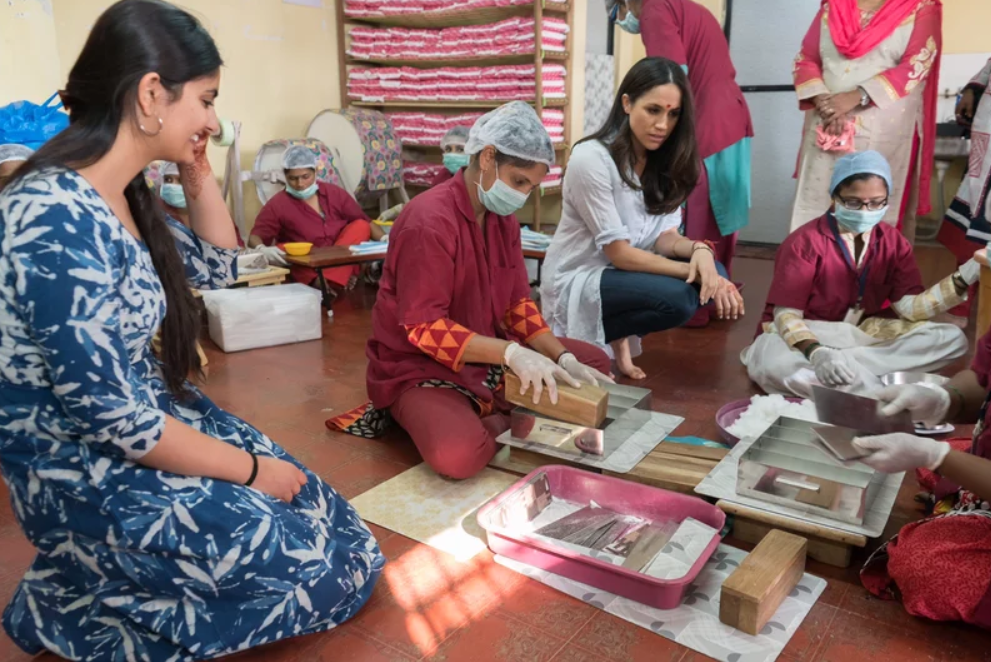Being Bi-Vocational in a Siloed World
While my Facebook feed was exploding last month with joyful posts about Bishop Curry’s beautiful sermon at the royal wedding, the content in my Twitter feed remained essentially unchanged. It was full of typical tweets written by colleagues from research and advocacy organizations about data-driven public health interventions. The difference was striking. This is because I keep my two vocations almost entirely siloed from one another—including on social media.
Siloed Identities
The separation is driven partly by explicit advice I received a year ago when I published a memoir about my unexpected conversion to Christianity. “Keep the two parts of yourselves in different domains,” I was instructed by well-known literary consultant. “You can be a writer on Facebook. Be a public health professional on Twitter. Keep your two platforms separate.” Her tone was firm; her recommendation about this issue was clear.
I felt relieved when I received this advice. At the time, I was fearful that if my public health colleagues knew about my growing religiosity (and if they knew I had written a self-revealing memoir about my faith journey), they might not take me seriously as a professional whose job it is to evaluate and promote “evidence-based” interventions.
At the same time, the expectation within the publishing industry is that authors contribute substantially to marketing their own books, and I wondered if I could be a “real” writer without a robust “platform” (a word I hate) in multiple social media outlets. The woman’s advice to cultivate a presence on Facebook as a writer and to reserve Twitter for my day job seemed like a reasonable compromise.
But a year later, I remain uneasy about this division in my public identities. I want to be a fully integrated person who shares herself authentically with the world. I don’t want my work in public health and my calling as a Christian writer to be relegated to entirely different domains.
Being Bi-Vocational
The duality of my two vocations has felt confusing until one of my priests used a word I hadn’t heard before. “You’re bi-vocational,” she said simply as we were sipping sodas together at a local restaurant where we had met one afternoon to talk.
When I heard the term, I did a double take. Was there such a thing? Did the term apply to me? Yes! The word rang true in my heart. That’s me, I wanted to shout. There’s a word for it! I’m bi-vocational! It’s a real thing!
Yes, I am bi-vocational. I care deeply and passionately about women having access to highly effective, affordable contraceptive services around the world. I work on this issue forty hours or more a week. And I love writing. Writing fills me with joy and helps me make sense of the world around me and within me. Both of these callings feel like a God-inspired, God-mandated, God-supported gifts.
A New Framework
Much has been written about pastors being bi-vocational. But as far as I can tell, almost nothing has been written about lay people being bi-vocational. This is a shame because I think there are a lot of us who feel we’re called to more than one vocation.
Before my priest used the term, I had been familiar with the word “avocation” which is used to describe an activity that is distinct from one’s primary vocation. When you Google the words online, most definitions of “vocation” include the phrase “professional occupation,” whereas avocation is typically defined as a “hobby.”
As I’ve reflected more on these words, the distinction between one’s vocation and avocation seems far too limiting. Instead, the idea of being bi-vocational, where both callings—regardless of whether they are paid or unpaid, “professional” or “amateur”—receive equal importance, seems much more appropriate. I don’t think God views our ministries in a hierarchical way. If we are called to serve in multiple ways, each of these callings must be honored equally.
Baby Steps
So perhaps the next step in recognizing myself as “bi-vocational” is to integrate the disparate parts of my lives more explicitly – including on social media. I am taking baby steps in this direction. When all of my Episcopalian friends were posting about Bishop Curry’s homily, I instead felt called to write about Meghan Markle’s work to increase access to menstrual hygiene products in developing countries. A colleague and I posted a blog about Meghan’s leadership on this issue; she and Harry asked wedding guests to donate menstrual pads to an organization that serves women in urban slums in India.
But on Twitter? My hand still pauses. I could have re-tweeted a post that day about the national re-launch of the Poor People’s Campaign. Bishop Curry and the Reverend William Barber were interviewed together about the movement on MNBC. Afterward, Reverend Barber tweeted that anyone who loves God must love and serve the poor, for love and service to the poor is the definition of Christianity.
But if I had re-tweeted that, my evidence-based public health colleagues would have known the truth. They might have seen or guessed that my professional work is animated by a sense of call I feel from God, and that I pray my actions and intentions will align with God’s will for the world. They might have realized that put my hope in God’s redemptive promise of a new heaven and a new earth, not just in human’s ability to create social change on their own.
But, unfortunately, the problem is within me. I am not integrated. I didn’t re-tweet Reverend Barber’s post that day, even though I admire his work hugely and am so grateful for his prophetic leadership. Instead, I tend to keep my faith “in the closet” when I’m at work. If I had re-tweeted Reverend Barber’s words, I would have exposed myself. I would have been letting everyone know that that I’m bi-vocational, and I view both of my vocations as gifts from God.

